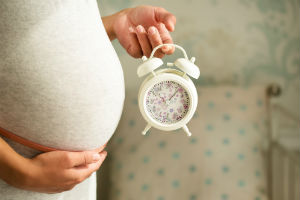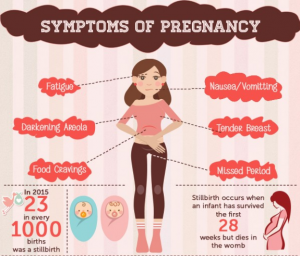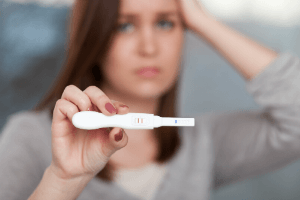What are the Early Signs of Pregnancy?

Pregnancy is a transformative journey that begins long before any visible signs. One of the most common questions among women who suspect they might be pregnant is, “What are the symptoms of pregnancy?”
Women might experience subtle changes in their bodies, some of which can be early indicators of pregnancy. Therefore, recognizing the early signs of pregnancy is crucial, as it enables timely and appropriate prenatal care.
What are the first signs of pregnancy?
The first signs of pregnancy can vary from woman to woman, but here are some common symptoms that many experience:
1. Missed Period
The most significant sign of pregnancy is a missed menstrual cycle. However, it can also be influenced by other factors, such as stress or hormonal imbalances.
2. Nausea and Vomiting
Often referred to as ‘morning sickness’, nausea and vomiting can occur at any time of the day. This typically starts around the sixth week of pregnancy but can begin earlier for some women.
3. Breast Changes
Changes in the breasts can be an early sign of pregnancy. This includes tenderness, soreness, a feeling of fullness, or a darkening of the areolas (the area around the nipples).
4. Fatigue
Increased tiredness or exhaustion is common due to hormonal changes, indicating early signs of pregnancy.
5. Frequent Urination
A need to urinate more frequently typically starts about six weeks into pregnancy but can occur earlier. Initially, it’s caused by hormonal changes and later by the growing uterus putting pressure on the bladder.
6. Light Spotting and Cramping
Light spotting known as implantation bleeding can occur when the fertilized egg attaches to the lining of the uterus. Some women also experience mild cramping during early pregnancy.
7. Other Symptoms
Some other symptoms of pregnancy include:
- Mood swings
- Bloating
- Headaches and back pain
- Constipation
- Food aversions
- Nasal congestion
- Acne or skin changes
How early do pregnancy symptoms start?
Pregnancy symptoms vary from woman to woman and even between pregnancies. While some women can start experiencing symptoms of pregnancy within a few days of conception, others may experience it after weeks, even after a positive pregnancy test.
Generally, the first sign of pregnancy is a missed period, which can occur around two weeks after conception. However, women may experience other early symptoms even before a missed period.
When should one take a pregnancy test?
1. After a Missed Period
The most appropriate time to take a pregnancy test is after a missed menstrual period. Testing too early can lead to inaccurate results due to insufficient levels of the pregnancy hormone (hCG) in the urine.
2. Follow the Manufacturer’s Instructions
At-home pregnancy test kits typically come with specific instructions regarding when to take the test. It’s important to follow these instructions carefully. Most tests suggest waiting at least one to two weeks after a missed period.
3. In the Morning
For the most accurate result, it’s best to take the test first thing in the morning as morning urine contains the highest concentration of hCG.
4. If Negative, Test Again
If the test result is negative but there are still symptoms of pregnancy, wait a few days to a week and test again. hCG levels increase rapidly in early pregnancy.
5. Consult a Healthcare Provider
Regardless of the result, it’s advisable to consult a healthcare provider. They can confirm a pregnancy with a blood test, which is more sensitive than a home urine test.
Recognizing the early signs of pregnancy can be crucial for women who are actively trying to conceive or who suspect they might be pregnant. It allows them to monitor their health closely and make timely decisions regarding their pregnancy care.
Early detection of pregnancy signs also enables women to seek professional medical advice at the earliest, ensuring both their well-being and that of their developing baby. While home pregnancy tests are a convenient first step to confirm a pregnancy, a blood test conducted by a healthcare provider can be more accurate. Book a pregnancy test with Dr. Lal Pathlabs for reliable and accurate results.
FAQs
1. What are the symptoms of early pregnancy?
Common symptoms of early pregnancy include a missed menstrual period, nausea or vomiting, breast tenderness and swelling, increased frequency of urination, fatigue, slight bleeding or cramping, and mood swings.
2. How soon do signs of pregnancy start?
Some women may start experiencing symptoms as early as a week after conception, typically around the time of a missed period, or about 6 to 12 days after conception.
3. How early can one detect pregnancy?
Pregnancy can be detected as early as a few days before a missed period using a home pregnancy test. These tests measure the levels of the hormone human chorionic gonadotropin (hCG) in urine, which is produced after the fertilized egg attaches to the uterine lining. For more accurate results, it’s advisable to take a blood test conducted by a healthcare provider about 7-12 days after conception.














